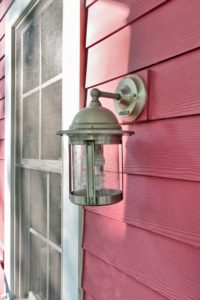
LEED home in Crozet, Virginia
I get many questions as an architect that focuses on energy-efficient, healthy design, but the most frequent is “what wall system should we use?” While there are many factors that go into this decision and there is not a one size fits all, I do have a favorite. Insulated Concrete Forms are frequently the best investment you can make on a new home or small business. This energy efficient wall system is air tight, performs well thermally, and creates a long-lasting durable solution.
While I understand that we rarely have hurricane issues here in Western Virgina, this energy efficient wall system is still superior in many applications. It does cost more for the wall itself, but as my clients will tell you, day one when the power bill comes, it costs less. A project we are working on in Grottoes, Virginia as a LEED consultant is constructed of Polysteel ICFs. The building owner moved into this structure, which is three times larger than his previous facility, and his energy bills are now lower. He is heating and cooling three times the space and saving energy. There are other benefits as well: the indoor air quality is superior due to no air leakage through the walls and the building is extremely quiet. While ICF is not a one size fits all solution, if you are looking for energy-efficient, durable, long-lasting systems, this is the first option I would recommend you evaluate.
While an ICF house might not be the normal construction you are used to, it is quickly becoming common place. This ICF home in Crozet is the first LEED for Homes Certified project in Virginia. Built in 2005, this home was on the cutting edge for “going green.” However, the traditional vernacular shows that ICF or for that matter, a “green” home can take any form, even traditional farmhouse.




